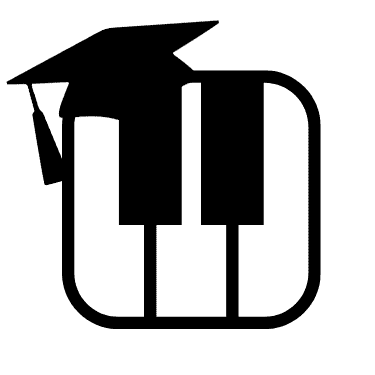(Five Core Principles, Part 2)
Today’s post is about improving your LISTENING SKILLS at the piano. This is a core principle underlying my teaching and my own playing, because everything we do as musicians revolves around listening, and relies on being as sharp and skilled as possible at listening well.
This is the second post in my series that serves as an introduction to my teaching. In this series, I will be going through five Core Principles that motivate me as a musician, pianist, and teacher. (Missed the earlier posts? Kickoff • Part 1)
I first started taking thinking seriously about the process of listening when I realized that there is a big difference between what you THINK is coming out of the instrument and what is ACTUALLY coming out of the instrument. It’s sort of like the difference between how your voice sounds inside your own head vs. when you hear a recording of your voice. We get used to focusing on the physical process of playing the piano, but that can sometimes get in the way of hearing ourselves as others hear our instrument in the room.
Today I’m going to give you three tips for how to deepen your listening skills and improve your ability to hear yourself objectively.
Tip #1: Record Yourself and Listen Back
My first tip is pretty straightforward, and if you don’t already do this, it will change everything.
Record yourself and listen back to the recording.
What I mean by this is: take out your phone or other recording device, do a playthrough of something you’re working on, and then listen back to it with the music score open in front of you.
Recording yourself and listening to the recording is crucial to narrowing that gap between performer and listener.
When you listen back to yourself, be sure to give it your full attention. Notice not just whether you play accurately, but also pay special attention to the sound quality of your playing: the tone, dynamic variety, and expression.
Take notes in your music about things you are doing that you really like and think you do well, and also take notes about things you want to work on and do differently.
Much like listening to a recording of yourself talking and gradually getting used to the way you actually sound to the rest of the world, recording yourself at the piano on a regular basis (at least once a week) will help narrow the gap between what you hear as you play and what the audience hears.
Tip #2: Listen to Music
My second tip: listen to music. A lot of music. Listen widely and broadly – let your curiosity guide you.
They tell aspiring writers to read a lot. By reading widely as a writer, you get familiar with other peoples’ styles and gain a sense for the rhythms and cadences of the written word.
“If you want to be a writer, you must do two things above all others: read a lot and write a lot. There’s no way around these two things that I’m aware of, no shortcut.” - Stephen King
And the same concept applies to musicians.
You’d be surprised at the number of students I come across who study classical music at the university or pre-college level who don’t actually listen to classical music.
And it makes such a difference in your playing; as a teacher, I can tell which of my students listen to classical music and who only plays the specific pieces of music they’re learning themselves at the piano.
Researchers have found that music is a universal language. It has its own grammar, syntax and internal logic that is found in human societies all over the world. You learn the style and subtleties by surrounding yourself with it and growing familiar with it, just like you can learn a language by immersing yourself in a culture that speaks it all the time.
It’s helpful to remember that you didn’t always play the piano; listening to music came first – and presumably brought you a lot of pleasure and joy. In fact, it’s probably one of the reasons you got interested in playing the piano in the first place.
So, my suggestion is: listen to as many performances as you can – both live and recorded.
If you don’t know where to start, or if you don’t just want to listen randomly to a bunch of music (which is actually not even a terrible idea), I suggest you use the pieces you’re currently learning as a starting point.
When you are working on a piece:
- Listen to the WHOLE piece you are learning (for example, if you’re learning one movement of a Beethoven sonata, listen to all the movements in that sonata).
- Listen to the other pieces in the same set by that composer (for example, if you’re learning a prelude and fugue by Bach, listen to the whole book of the Well-Tempered Clavier that it comes from)
- Listen to other works for other instruments by the same composer as the one you’re playing – so, for example, if you’re playing a sonata by Mozart, listen to his symphonies, string quartets, and operas.
Tip #3: Be the Performer…AND the Audience
And my final tip is to Be the performer AND the audience.
Because the audience is located at least several feet away from the piano, a person listening to you does not hear the music the same way you do. This just comes down to the physics of sound. So, it’s your job as the performer to perceive how the sound moves into the room and develop an awareness of the aural perspective of the audience.
Recording yourself and listening back, as I discussed earlier, is a great way to start to bridge this gap between what you hear as the performer and what the audience hears in the room.
But a more specific and concrete way to start being the performer and the audience is about engaging your imagination differently when you practice.
You can literally imagine yourself as two people!
As you play, listen to the sound in the room as well as the sound coming directly from the piano under your ear. This takes practice but is definitely a skill you can develop.
Even if you are in a small enclosed room like a practice room, you can use your imagination to visualize the sound projecting out into the back of a larger space. When I was studying in Cologne, Germany, I lived in a small studio apartment with basically just my bed and a grand piano in one room.
I had a postcard of the inside of the Kölner Philharmonie, which is a big concert hall in Cologne where all the major orchestras and recital soloists play. I put this postcard where I could see it from my practice bench. The photo is from the perspective of the stage, looking out at the audience.

I could see the postcard from my piano bench while I practiced, and I imagined I was in that space, projecting to the back of the hall. That really helped me cultivate the habit of listening to my sound from the point of view of the audience.
In Conclusion…
So, those are my tips for refining and improving your listening skills at the piano. Listening is one of my Core Principles that I come back to again and again in my teaching and in my own playing, because there are always ways to improve and refine this important skill.
Let me know how YOU have improved your own listening skills in the comments!
VIDEO: Improving your Listening Skills at the Piano
Share this article
